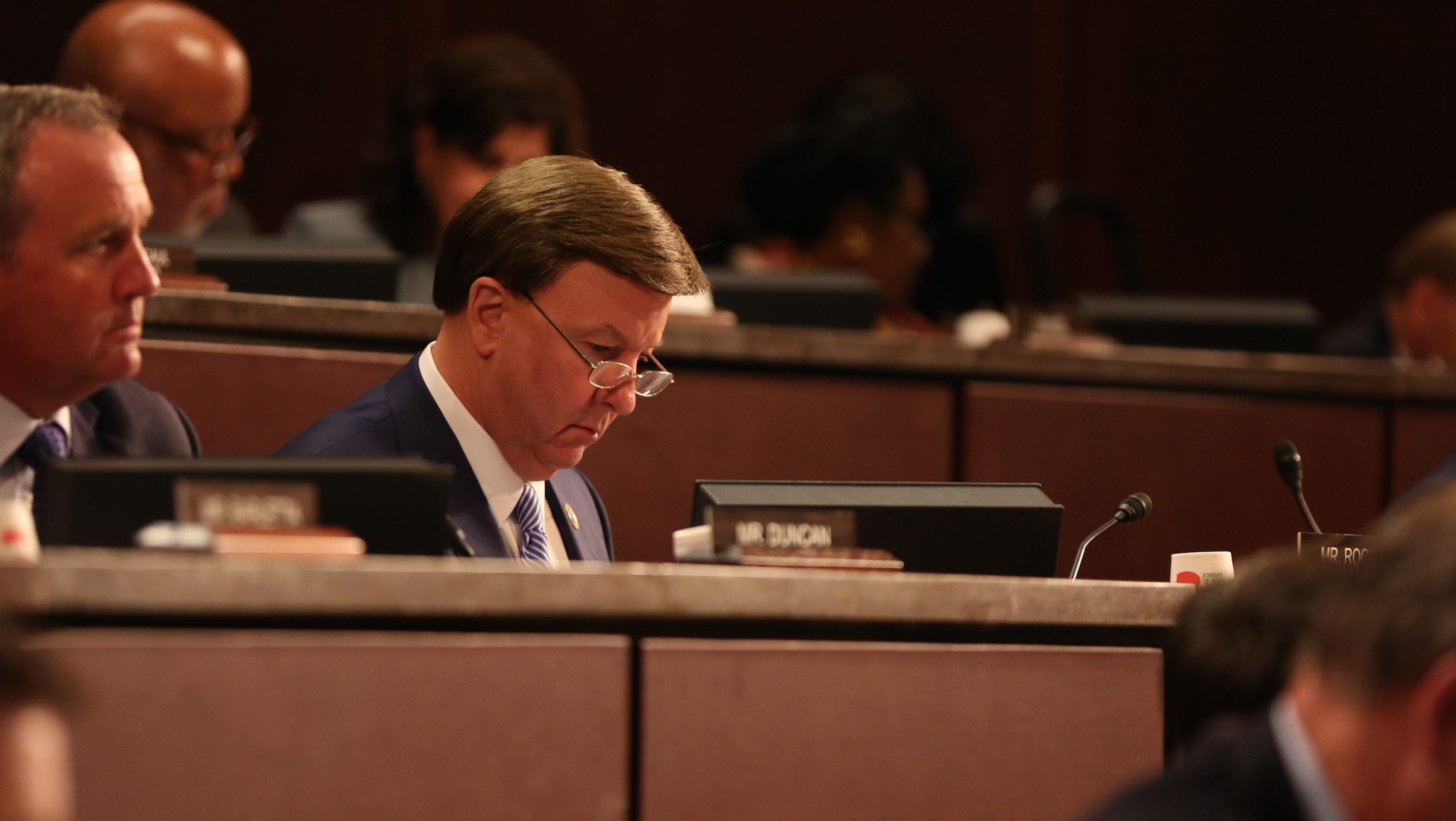Thursday, Congressman Mike Rogers, R-Saks, hailed a vote by the House Armed Services Committee (HASC) to create a new military branch for Space. The “Space Force” is a measure offered by Rogers and Congressman Jim Cooper, D-Tennessee. The measure passed unanimously during the National Defense Authorization Act (NDAA) mark-up for Fiscal Year 2020 (FY20).
The is an initiative Rep. Rogers and Rep. Cooper have been tirelessly pushing for over two years and its creation was called for by President Donald J. Trump (R) last year.
“I am thrilled my colleagues on HASC recognize the importance of focusing on this proposal. As I have said time and time again, the future of warfighting will be fought in Space. Russia and China are surpassing us in Space capabilities and we must have a military branch focused solely on this mission,” Rogers said.
“I also applaud President Trump’s vision and unwavering support in creation of this military branch,” Rep. Rogers added. “Our national security truly depends on it.”
“Our satellites were safe until about 11 years ago, when China successfully attacked one of its own weather satellites,” Congressman Cooper said. “That test proved that China could destroy many satellites, as well as create a debris field that threatens everything in orbit. Nations like Russia have also taken aggressive actions in space. These nations aren’t our friends. An adversarial attack in space could cripple satellites before we knew what hit us. Without satellites, cell phones wouldn’t work, our banking systems would crash, planes could not fly, and electrical sockets would go dead. It would crush our economy and paralyze our military.”
“At the end of 2016, Rep. Mike Rogers (R-AL) and I began pushing the idea of giving our military space professionals more support and flexibility so that they could better meet the national security challenges that America has been facing,” Cooper continued. “Since most of these space professionals are in the Air Force, our natural conclusion was that the Air Force was not doing enough to help them and to ensure our readiness in space. Mike and I are the chairman and ranking member of the Strategic Forces Subcommittee of the House Armed Services Committee, so it is our job to request the briefings and to lead the hearings of the subcommittee. Our jurisdiction includes nuclear weapons and military satellites. We knew that the Chinese and Russians had been taking steps for many years to militarize space, to threaten U.S. and world satellites that are largely defenseless, and to be able to disrupt every type of satellite activity on which the world’s business, entertainment, and defense structures completely depend. We also knew that the U.S. response was extremely slow, ridden with cost-overruns, and increasingly behind the technical curve, leaving us increasingly exposed to new threats.’
“After months of discussing these problems with top Air Force personnel, with the other services, and with outside experts, we decided that creation of a “Space Corps” would be appropriate within the Air Force,” Cooper explained. “The Marine Corps has long held a similar position within the Department of the Navy. This proposal would have given the secretary of the Air Force and other Air Force leadership more authority to streamline the acquisition process for new satellites, to improve morale and expertise of space specialists in the Air Force, and to gradually start the process of evolving space from the Air Force over many years. We specifically directed that no new military bases, academies, uniforms or unnecessary overhead were required. We preferred that the Air Force reallocate existing resources to strengthen its space capabilities and increase its organizational focus to address rapidly emerging threats.”
“Each year, Senate conferees have tried to trim back our proposals with some success,” Cooper said. “In response, we urge our Senate colleagues to attend the secret Pentagon briefings that will help them understand the urgency of our security challenges. Space is already a war-fighting domain. Pretending that our satellites are safe today would be foolish. Despite Senate misgivings, the strong bipartisan nature of the House’s support for the idea has resulted in fundamental changes in the Air Force treatment of space.”
Congressman Mo Brooks (R-Huntsville) said that the new military branch will be called the Space Corps, rather than the more popular “Space Force” that has been popularized in the media.
Huntsville’s Redstone Arsenal has been suggested as a possible site for Space Corps Command.
Rogers serves as Ranking Member of the House Committee on Homeland Security and is a senior member of the House Armed Services Committee. He is the Ranking Member on the subcommittee on Strategic Forces.



















































